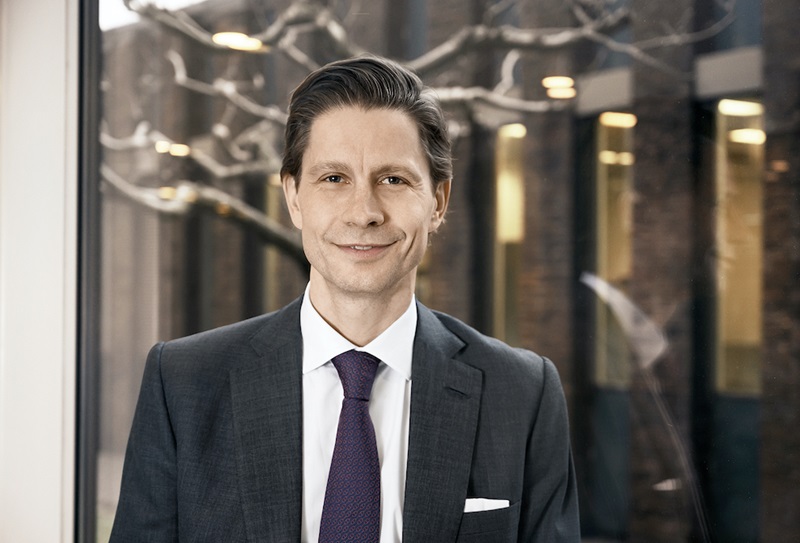Christian Heiberg, can you please describe your role as the CIO of Danske Bank Asset Management?

“I have overall responsibility for all our investment portfolios, including the asset allocation decisions that go into our solution mandates. We have a diversified set-up of portfolios investing in many different asset classes and geographies. That means we also have a diversified skill set, with a clear delegation of investment responsibility down to the individual investment team behind each strategy. We do not manage our portfolios through committees or on a house-view basis, but bottom-up, with the responsibility placed where the competence resides.”
As CIO, in what way do you regard sustainable investment to be part of this?
“Very much in the same way, actually. I think there is a tendency to think of ESG analysis and investing as a completely different ball game, something that needs to be treated more on the side by ESG analysts, supplementing the financial analyses our portfolio managers carry out. There are those who think you need to be “passionate” about sustainability to really understand the full implications of it. I lead an organisation that is extremely passionate about investments and in being so they will look into all relevant aspects of a given investment opportunity, be they sustainability related or not. Hence, the analyses and decisions taken from a sustainability point of view need to be placed where the competence, knowledge, and insights into the asset class and the concrete investment opportunities reside. In other words, it is integrated into all other relevant analyses at an investment team level.”
How does the ESG Integration Council fit into this picture?
“The Council is where I as CIO can take the lead in terms of ESG-related matters. It is an important forum for me to strengthen and reinforce our view on sustainable investments, i.e. organised bottom-up and anchored in our strategy ESG Inside®. Moreover, this is the forum where the investment organisation discusses and evaluates ESG risks and dilemmas, reviews and endorses investment restrictions, decides on collaborative engagements, and decides on other topics of relevance across my organisation.”
What is the ESG Integration Council?
The ESG Integration Council comprises Heads of investment strategies and was created to support ESG integration into the core of our investment processes. Since ESG Inside® is about making better-informed investment decisions, addressing risk issues, problems and dilemmas, and influencing portfolio companies through active dialogue to contribute to a positive outcome, decisions must be anchored in and supported by the investment organisation.
During the last 12 months, the ESG Integration Council has been involved in the development and creation of new policies, instructions and initiatives related to Sustainable Investments. This includes the development of voting guidelines, Sustainable Investment Instructions, a commitment to Climate Action 100+ as well as a new policy to restrict tobacco investments in order to meet customer demands.
Can you give a concrete example?
“Last year, we took the decision to restrict investments in tobacco companies. As such, it is never an easy decision to expand investment restrictions, but with the research presented and the amount of client input included the decision to restrict was not that difficult.”
What else did have the Council discussed?
“One important initiative was the new, or rather the second, Shareholders’ Rights Directive. Clearly, this is something we cannot conceptually implement bottom-up and where we need firm commitment across the investment organisation. In many ways, I think our organisation was quite prepared, in the sense that we were already able to report on our engagements in a quite detailed way, for example. One concrete outcome of the work with the Shareholders’ Rights Directive was the voting guidelines, which was implemented in 2020. Among other things, the guidelines set out some important rule-based approaches to more standardised proposals for the Annual General Meetings (AGM). This will not only save time and increase consistency across our actively managed portfolios, it enables us to vote on passive holdings, an important step to further develop and elevate our sustainable investment offering across our product range.”
Read more stories
You can learn more about how our investment teams work with sustainability matters in our latest annual report Our Sustainable Investment Journey.

